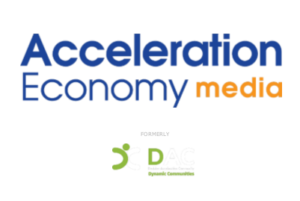AI Agent & Copilot Podcast: Healthcare IT Leader (and Doctor) Calls Copilots a Game Changer
Welcome to the AI Copilot Podcast, analyzing the latest AI Copilot and agent developments from Microsoft and its partners, delving into customer use cases, and exploring how AI plus the Cloud helps customers reimagine their business. In this episode, Tom Smith speaks with Dr. Patrick McGill, chief transformation officer and a practicing physician at Community Health Network, which has 200 care sites and affiliates in central Indiana and uses the Microsoft DAX Copilot.
This episode is sponsored by the AI Agent & Copilot Summit NA, taking place March 17-19, 2026 in San Diego, California.
Highlights
Blending Clinical, Technology, and Business Roles (00:57)
Dr. McGill oversees IT, analytics, digital transformation, and strategic partnerships such as those with Microsoft, Epic, and other tech partners. He also oversees population health, personalized medicine, and clinical areas including home care, palliative care, and geriatrics. He still sees patients one day a week.
Dr. McGill refers to himself as an “accidental” technology leader who joined Community Health as a practicing physician in 2010. He did not want the new electronic system to negatively impact the way he practiced medicine so he began to focus on informatics, quality improvement, and clinical strategies; he continued to add new duties.
Need for Copilots (04:20)
Healthcare is still humans taking care of humans so it’s important to be able to leverage technology as an assistant. With electronic medical records (EMRs), there’s been a lot of discussion of burnout and how much data entry that providers have to do. Community Health used a virtual scribe program to address the problem but it wasn’t adequately scalable. It was only able to provide that program to 200 of its 1,500 providers due to costs.
Selection of DAX Copilot (06:21)
McGill received a demo of DAX Copilot roughly 18 months ago; it captured a mock patient visit in a busy, noisy conference exhibit hall; he viewed it as an “absolute game changer.” Community Health went with the DAX Copilot and spent the bulk of 2024 rolling out the technology. It’s in use across primary care, expanding across specialty care and, by the end of the year, will be available to any providers that want to use it.
Patient Experience (10:07)
Doctors can now spend all their time focused on engaging with the patient face-to-face without needing to enter data. McGill said in the past, he would end the typical day with the majority of his visits not finished because of notes not being completed so he would need to finish notes at home or the next day. “Since we transitioned to DAX Copilot, I have not left the clinic with an open visit.” The first draft of a typical summary is about 95% accurate.
The biggest impact of the technology is in addressing burnout. “We’ve had dozens and dozens of physician stories saying, ‘I really hated clinic. I hated the EMR, but this has really given me new life. It’s allowed me to not have to work at night or on the weekends. I’m closing my charts faster and feel like I have better interactions with the patient.'”
Information Flow, Business Impact (15:40)
The DAX Copilot is integrated into the Epic Haiku mobile app. A clinician begins a visit by opening the patient chart on their phone and hitting “record,” then information flows directly into Epic without any clicking or interaction. And the technology will only get better. “The speed of innovation with some of these new digital tools is just mind-blowing, and I think that’s really going to drive some of the adoption and really drive some of the feature innovation,” Dr. McGill says.
Like the virtual scribe program began, DAX Copilot is viewed as a ‘well-being’ program; it wasn’t about expecting doctors to see more patients or do more work. The goal was to have them close their charts and spend their evenings as they wanted to.
Future Users or Use Cases (19:28)
DAX Copilot is being rolled out or piloted in the emergency room, where there’s a different type of workflow to manage. A plan to extend it to nurses could also have a big impact: There are 8,000 nurses for whom the documentation burden is “immense,” even more so than for the doctors.


